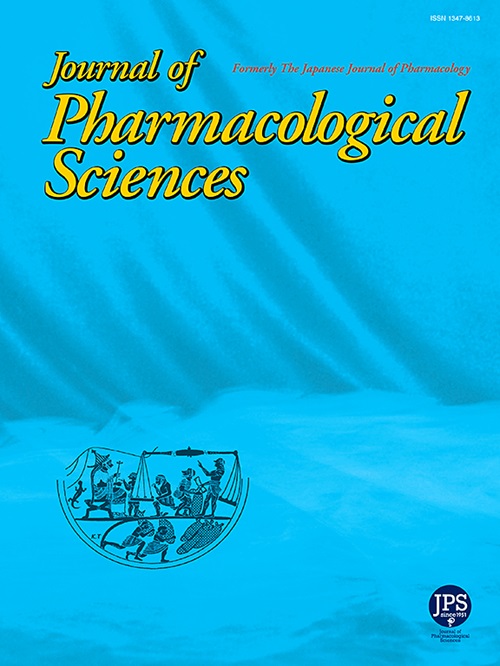Alteration of COX-1 and TLR4 expression in the mouse brain during chronic social defeat stress revealed by Positron Emission Tomography study
IF 2.9
3区 医学
Q2 PHARMACOLOGY & PHARMACY
引用次数: 0
Abstract
Despite the recognized roles of neuroinflammation in mental illnesses, PET imaging on currently available biomarkers has limitations due to the lack of evidence demonstrating their relationship to the molecular and cellular events of inflammation associated with the pathology of mental illness. Rodent stress models, such as chronic social defeat stress (SDS), have identified crucial roles for COX-1 and TLR4, which are innate immune molecules, in chronic SDS-induced neuroinflammation and its behavioral consequences. In this study, we performed COX-1 and TLR4 PET imaging at multiple time points during chronic SDS in mice. For COX-1 PET imaging, we used the COX-1 PET probe (S)-[18F]KTP-Me. Subchronic SDS transiently increased uptake and slower washout in broad regions of the brain, including the cerebral cortex, hippocampus, striatum, and thalamus. For TLR4 PET imaging, we developed a new BBB-permeable PET probe, [11C]1, which detected LPS-induced neuroinflammation. Washout of [11C]1 was facilitated in the cerebellum after subchronic and chronic SDS and in the pons-medulla after chronic SDS. Collectively, our findings suggest the potential usefulness of COX-1 and TLR4 PET imaging in visualizing and understanding time-dependent process of neuroinflammation in stress-related mental illnesses.
正电子发射断层扫描研究慢性社会失败应激小鼠脑内COX-1和TLR4表达的变化
尽管神经炎症在精神疾病中的作用是公认的,但由于缺乏证据表明它们与与精神疾病病理相关的炎症的分子和细胞事件之间的关系,目前可用的生物标志物的PET成像存在局限性。啮齿类动物的应激模型,如慢性社会失败应激(SDS),已经确定了先天免疫分子COX-1和TLR4在慢性社会失败应激诱导的神经炎症及其行为后果中的关键作用。在本研究中,我们在小鼠慢性SDS的多个时间点进行COX-1和TLR4 PET成像。COX-1 PET成像,我们使用COX-1 PET探针(S)-[18F]KTP-Me。亚慢性SDS在大脑的广泛区域(包括大脑皮层、海马、纹状体和丘脑)短暂地增加摄取和减慢冲洗。对于TLR4 PET成像,我们开发了一种新的血脑屏障可渗透PET探针[11C]1,用于检测lps诱导的神经炎症。亚慢性和慢性SDS后的小脑和慢性SDS后的脑桥-髓质中[11C]1的洗脱更加容易。总的来说,我们的研究结果表明COX-1和TLR4 PET成像在可视化和理解压力相关精神疾病中神经炎症的时间依赖性过程中的潜在用途。
本文章由计算机程序翻译,如有差异,请以英文原文为准。
求助全文
约1分钟内获得全文
求助全文
来源期刊
CiteScore
6.20
自引率
2.90%
发文量
104
审稿时长
31 days
期刊介绍:
Journal of Pharmacological Sciences (JPS) is an international open access journal intended for the advancement of pharmacological sciences in the world. The Journal welcomes submissions in all fields of experimental and clinical pharmacology, including neuroscience, and biochemical, cellular, and molecular pharmacology for publication as Reviews, Full Papers or Short Communications. Short Communications are short research article intended to provide novel and exciting pharmacological findings. Manuscripts concerning descriptive case reports, pharmacokinetic and pharmacodynamic studies without pharmacological mechanism and dose-response determinations are not acceptable and will be rejected without peer review. The ethnopharmacological studies are also out of the scope of this journal. Furthermore, JPS does not publish work on the actions of biological extracts unknown chemical composition.

 求助内容:
求助内容: 应助结果提醒方式:
应助结果提醒方式:


